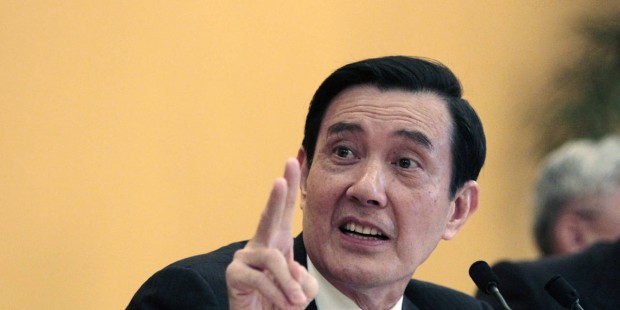Taiwan leader presses claim to South China Sea in isle trip
Taiwan’s president Ma Ying-jeou will visit a disputed island in the South China Sea on Thursday, his first trip to the self-claimed territory amid rising tensions in the region.
Taiwan’s President Ma Ying-jeou, accompanied by about 30 members of his staff, left Taipei aboard a C-130 cargo airplane plane headed for Taiping Island, also known as Itu Aba.
Though Taiwan officially claims all the Spratlys, as well as the Paracels and other features in the South China Sea, Itu Aba is the only feature actually occupied by Taiwan, and thus is critically important to preserving its presence in the region.
Beijing regards nearly the whole of the South China Sea as its territory and other claimants have complained it is become increasingly aggressive in pressing its claim.
Vietnam, Malaysia and Brunei Darussalam also have claims to the waters, home to possible rich oil, gas and mineral deposits aside from being a major trading route. Taiping lies about 1,200 miles south of Taiwan and Beijing has asserted its claims over the region with man-made islands, and building ports, airstrips and other infrastructure. Taiwan still publicized the visit as an indication of Taiwan’s sovereignty over the disputed island, and of Itu Aba’s status as an island.
At the heart of these disputes are a series of barren islands in two groups – the Spratly Islands, off the coast of the Philippines, and the Paracel Islands, off the coasts of Vietnam and China.
The one-day trip was announced by Ma’s office and followed months of speculation he would travel to Itu Aba in the Spratly archipelago before he steps down in May.
There was no immediate response to Ma’s visit from China, although a spokesman for the Cabinet’s Taiwan Affairs Office on Wednesday repeated Beijing’s claim to “indisputable sovereignty” over the South China Sea islands.
The Taiwanese Defence Ministry told Reuters that Ma had departed for Itu Aba.
The president’s visit comes just after national elections in Taiwan that put in power the independence-leaning Democratic Progressive Party (DPP) and its leader Tsai Ing-wen.
“No matter what changes occur in Taiwan, the basic fact that both the mainland and Taiwan belong to one China is unchanged and will not change”, Wang said.
“To resolve disputes in the South China Sea, the ROC [Republic of China or Taiwan] government will work to safeguard sovereignty, shelve disputes, pursue peace and reciprocity and promote joint development”, he said. The Nationalists fled to Taiwan in 1949 after losing the Chinese civil war to Mao Zedong’s Communists.
“Protecting the rights of the united states and keeping its land entire, protecting the rights of the Chinese, will be the common obligations and obligations of China and Taiwan”, said Ma Xiaoguang. Academia Sinica researcher Song Yann-huei told The China Post that the timing of Ma’s visit to the island was “pressing” and came earlier than expected.
Taiwan has been upgrading facilities on the island, where about 180 people live, majority coastguard personnel.








